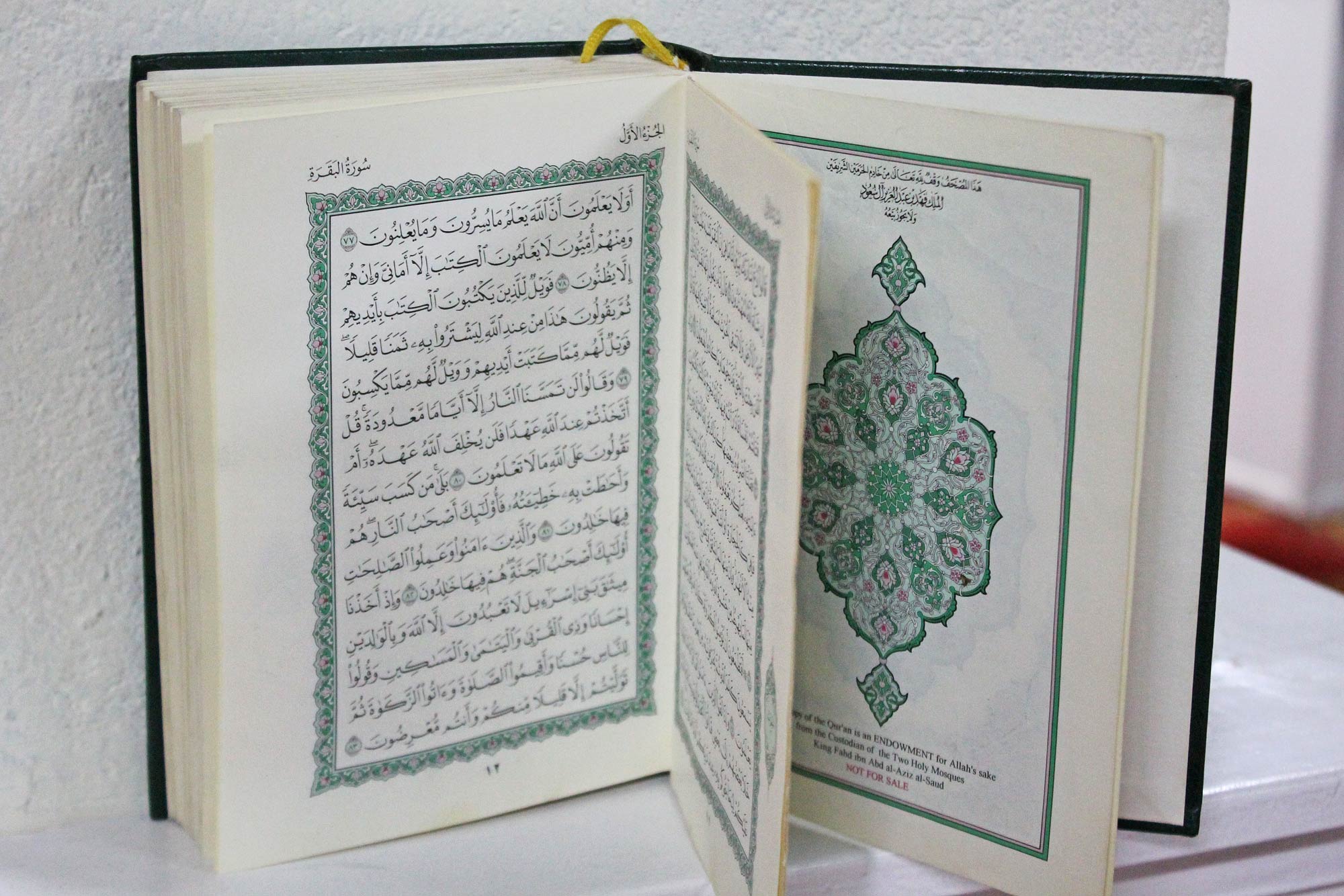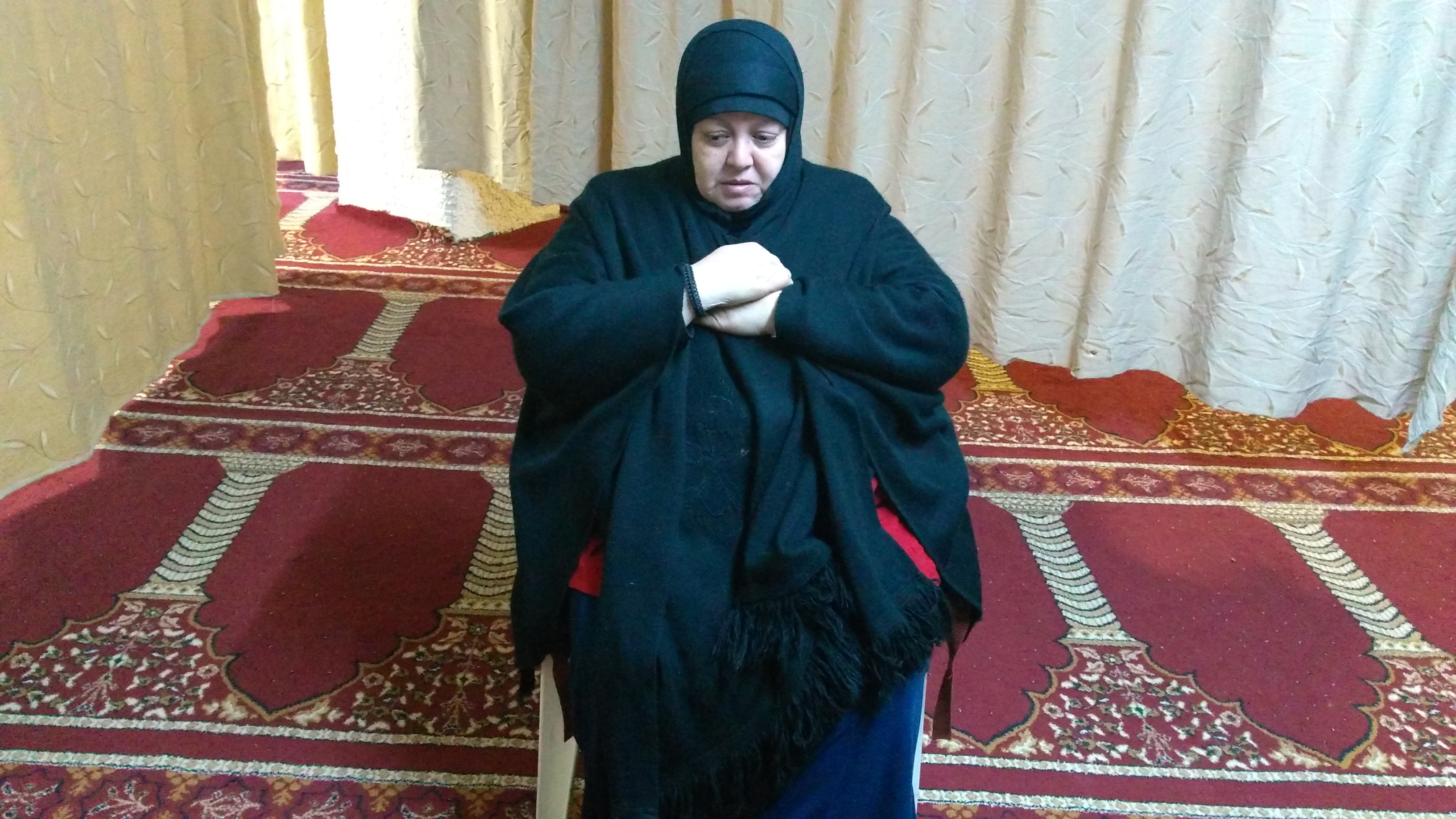The Meaning of a Mosque:
Muslims in Athens await official place of worship after centuries underground
ATHENS — A cloud of dust hangs in the air as mobile cranes dig the foundation for Athens’ first official mosque in nearly two centuries.
Syed Jamil, an advocate for immigrant Muslim communities, points to graffitied walls as he approaches the site, a disused navy base in Vottanikos, a crowded neighborhood two miles west of downtown Athens.
“The signs aren’t welcoming,” says Jamil. “See, they want Orthodox Christianity here, not the new mosque.”
A clutch of police cars mans the outpost secured by double-barreled metal gates. The new mosque will occupy a 3,000-square-foot building and is expected to open in July. It will start a new chapter for Athens, a frontier between Europe and the Muslim world. Greece has had no formal place for Muslims to pray since it drove out occupying Ottomans in 1833.
“We’ve been fighting for this for years,” says Jamil, the president of Pak-Hellenic Cultural and Welfare Society in Athens. “The new mosque will have symbolic value for 300,000-odd Muslims who live in Athens,” he says with a warm smile.
At present, there are nearly 100 unofficial mosques in Athens. The city has become a mosaic of pockets for different Islamic sects such as Dawat-e-Islami, Zia-ul-Ummat, Ahmadiyya, Sunni and Shia.

“No doubt there are ideological differences, but we sort them out amicably. Our mosques are open to anyone with faith in Allah,” says Jami.
Large numbers of Muslim migrants from Egypt settled in Athens in the 1950s. This was followed by waves of refugees fleeing war, persecution or economic crisis from other parts of the world. Sayyed Akhtar Mosavi, an imam of the Pakistani Shia community in Athens, says, “The circuit of underground mosques serves the needs of Bangladeshis, Pakistanis, Afghans, Egyptians, Somalis and even Syrians. But the main mosque will bring everyone on a common platform.”
Despite the opposition, rising immigration from Muslim countries in recent decades has made the establishment of a mosque in Greece an urgent concern.
Jamil’s coalition offers training seminars for migrants from Pakistan in Greece. It also gives social aid to refugees and immigrants.
“We’ve been discussing issues such as who will manage the mosque and how can we make it open to Muslims of all sects,” he says.
Different Voices
The diverse Muslim community in Greece speaks in different voices about their integration within the country. Naim Elghandour, an Egyptian who’s lived in Athens for 45 years, isn’t happy. As president of the Muslim Association of Greece, he says, “Christians can pray in designated places, so why do Muslims have to go underground? The government makes us feel like second-class citizens. We deserve to have a place to pray with dignity.”
And Mohammad, a Palestinian who owns a basement-turned-mosque in South Athens, laments that Muslims don’t even have a sanctioned burial ground in Greece.
Following a Quran reading session with congregants from Arabic countries, he says that discrimination against non-Orthodox believers in Greece does not end with death. For a Muslim, there’s practically no chance of burial outside of Thrace, which has a Muslim minority of Turkish descent. “Local municipalities frown upon us under the influence of the Orthodox Church,” Mohammad says.

Transporting the dead to Western Thrace costs about 1,400 euro, and most ordinary Muslims can’t afford it. Refugees often drown in the waters off Greece while making their way to safety. “We have to wash their bodies, pray in basements and then make arrangements for transportation to Thrace. It’s humiliating,” adds Mohammad.
Some Muslim clerics also feel they aren’t properly represented in Greek society. Atta-ul-Naseer, imam and president of the Ahmadiyya community in Greece, believes the new mosque will cater only to Sunnis because they are overrepresented in Greek society. “As an Ahmadiyya Muslim, I won’t be allowed to go and pray there … It’s not a mosque for all Muslims but for a sect of Islam,” he notes.
We have to wash their bodies, pray in basements and then make arrangements for transportation … It’s humiliating.
Mosque owner
The Greek government has said the new mosque will be open to all Islamic sects. But some people are still on tenterhooks. Alexios Dimitras, a grocery store owner in Athens, says with the economic crisis looming over Greece, it’s unfair to privilege a religious minority over the whole population. “Which sect of Islam will the new mosque cater to? Sunni, Shia or Wahhabi? Where the threat of extremism is so rampant around the world, will the city be transformed into a site of religious conflict?”
Far-right parties such as Golden Dawn have targeted Muslim communities. Apart from staging demonstrations against the new mosque, Golden Dawn members have threatened to shut down several unofficial places of worship. In 2012, a petrol barrel set fire to an Egyptian unofficial mosque in one of the most densely populated municipalities in Athens. Other places of worship have also been defaced by them.
“We get no security from the police or the government. Still, Muslims have remained resilient,” says Mahmud, a Somali who moved to Greece 40 years ago.
Because of heightened Islamophobia, authorities have been discreet about the new mosque’s construction and layout. They say the building can hold only about 350 congregants, and it will not have any minaret. Some residents don’t want the mosque to stand out in their neighborhood.
“We are now concerned whether they’ll allow azaan — the Islamic call to worship recited by the muezzin at prescribed times of the day. All Muslims would want that,” says Iqbal, a resident of Vottanikos. The azaan call usually filters out through loudspeakers, which might be intrusive for some residents. It might also be a critical factor for an Orthodox Church — Agios Christoforos that’s on a land adjacent to the mosque.
Kalantzis, Secretary General for Religious Affairs, thinks that co-existence of a church and mosque sends out a strong message for religious freedom and power of the Greek civilization. “Maybe some extremists don’t like to see this picture since it’s against their political ideas. They have the right to talk about it without provoking hate. We don’t want to create religious ghettos in Athens,” he says.
Unofficial Mosques
The mosque coming up in Vottanikos is the exception, not the rule. Unofficial mosques in Athens have been lifelines for thousands of Muslims. They have provided support to minorities who’ve been trickling in greater numbers over two decades. Tucked away in congested alleyways, they could be missed easily except the ‘masjid’ signs scrawled in Urdu, Hindi, Bengali or Arabic on the walls of some buildings in immigrant-dominant neighborhoods.
Masjid al-Jabbar, a repurposed garment store in Athens’ Omonia neighborhood, is no different. The imam from Bangladesh, Jameel Ahmed, cranks open a rusty iron gate to let in devotees at the crack of dawn.

Walking on cold granite floor we go down a flight of stairs to a room approximately 150 square meters in size. An Islamic prayer calendar is pinned to a barren green wall, while framed phrases of the Quran are strewn around the room as decorative wall hangings. We sit down on a musty red carpet. Ahmed received training in Quranic readings at madrasas in Bangladesh before moving to Greece in 2012 for better job opportunities.
The imam faces a wall niche to lead a small group of devotees in namaz (morning prayer). He says that he’s grateful for the Syriza government’s attitude toward Muslims. “They are sensitive to the intimate nature of prayer that has carried on for generations at underground mosques,” he says.
Some imams like Ahmad are apprehensive that after the completion of the main mosque, many of the makeshift places of worship might be forced to shut down. “It’s true that the main mosque is a breakthrough in Greece’s history, but a lot of worshippers would prefer the smaller places because of convenience and community feelings that they engender,” he says.
Unofficial mosques need licenses to operate as places of worship under the Greek law. Jamil clarifies that the government will support these mosques so long as they live up to code. “They have to abide by the rules of public order in terms of building laws, security measures and public health. Even the imams need to be legal citizens. Unfortunately, most of the mosques will find it hard to live up to those standards,” he fears.
When the new mosque opens, stronger proof of how the disparate Muslim community interacts with one another will become clear, says Jamil.
“Despite ideological differences, the various Muslim sects have cooperated with one another. But when the mosque is ready, we’ll see if everyone still bands together in an official place of worship,” he says. It will also signal how modern Greek society sees Islam.
But for now, local Muslims are waiting for this new milestone in Greece’s history.
“So far, we’ve called on Allah to end the financial crisis only at underground mosques. Maybe with the new mosque, our prayers will have greater resonance since so many people will pray together,” says Ahmed, an imam at a Bangladeshi mosque.
Despite the signs of opposition scribbled on the walls outside the navy yard in Vottanikos, there are many who are eager to see this dream realized.

































